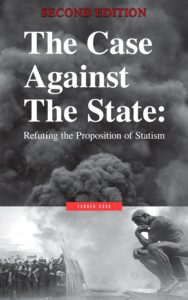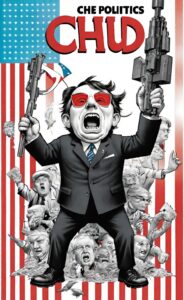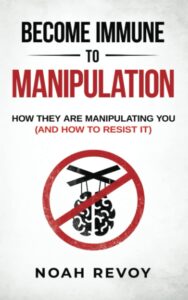Often we hear about various groups that engage in politics. However, there are also many who choose to abstain. Among those are the Chuds, a group that is known for its voluntary withdrawal from politics and statism. But why do Chuds decide to stay away from politics and the state system?
The Appeal of Personal Freedom and Independence
Freedom and self-reliance form the bedrock of Chuds’ choice to distance themselves from politics and state systems. They see their non-participation as a protective shield, guarding their personal liberty from potential infringements often presented by political dogmas. Politics, they feel, tend to place restrictions on individuals, imposing legalities and regulations that may not always resonate with one’s personal ethos and core values.
For the Chuds, their absence from the political arena is a statement of their deep respect for personal freedom and the belief in the individual’s ability to govern their own life without imposed constraints. They consider their decision as an act of safeguarding their autonomy, choosing to exist beyond the confinements that politics can sometimes impose.
Disdain for Politics and Political Games
Chuds often look at the political landscape with a sense of repugnance. For them, it represents a playing field filled with power dynamics, cunning strategies, and deceitful tactics that are at odds with their principles. They see politicians and political parties engaged in a relentless pursuit of power, often at the cost of truth and fairness.
The Chuds cringe at the thought of maneuvering their way through this labyrinth of trickery and manipulation, finding it in stark contrast to their values of honesty, integrity, and straightforwardness. They favor a no-nonsense approach to life and find the political theatre replete with all the elements they consciously choose to avoid. Thus, for the Chuds, the murky waters of politics are not worth navigating, and they choose instead to remain firmly on the shores of candor and authenticity.
The Issue of Trust and Transparency
Trust and transparency aren’t mere buzzwords for the Chuds, they are cornerstones of their way of life. The politics scene, unfortunately, often leaves them disappointed in these aspects. With countless incidents of political scandals, accusations of corruption, and secret dealings regularly hitting the headlines, the Chuds perceive a worrying deficiency in these vital elements within the political arena. Such instances fortify their belief in the systemic inadequacies of politics, prompting them to question the authenticity and credibility of political institutions.
They argue that by stepping back, they are, in fact, refusing to endorse a system that they view as fundamentally flawed and murky. The Chuds’ decision to steer clear of politics, in this regard, is a loud proclamation of their longing for a society where honesty and openness are more than mere campaign promises. They envision a world where these virtues are the norm, not the exception. Their absence from political participation symbolizes their stance against what they see as the opaque and often dishonest nature of politics. This lack of trust and transparency in politics is one of the compelling reasons why the Chuds choose to remain detached from it.

> Check Current Book Prices <
The Desire for Less Government Interference
Inherent in the Chuds’ choice to eschew politics is their yearning for a less intrusive government. They strongly advocate for minimal government intervention in the daily affairs of the citizens. They contest that more often than not, government overreach translates into an array of unwanted regulations that hamper personal liberties and stifle economic growth. It’s their belief that these stringent guidelines often result in an atmosphere of suppressed creativity and innovation, deterring individuals from exploring their full potential.
By consciously staying out of the political scene, Chuds are in essence voicing their disapproval of what they perceive as an overbearing state system. Their decision encapsulates their desire for a society where people are allowed to pursue their dreams and aspirations without having to navigate a labyrinth of restrictive state regulations. For the Chuds, distancing from politics is a reflection of their aspiration for a government that plays a supportive, rather than a suppressive, role in its citizens’ lives.



The Perception of Politics as a Distraction
Politics, in the eyes of the Chuds, can often function as an unwelcome sideshow, diverting attention away from the issues they deem most pressing. They maintain that the all-consuming nature of political discourse often results in vital matters being sidelined.
From the Chuds’ perspective, the focus on politics often blinds society to these substantial issues. This belief feeds into their decision to keep a clear distance from political engagements. Instead of immersing themselves in the political hullabaloo, they consciously divert their energies to addressing what they perceive to be truly consequential issues. The Chuds argue that their retreat from politics allows them to stay attuned to these often overlooked concerns, thereby enabling a more purposeful contribution to society.
The Chuds’ Hope for a Better Society
While Chuds may refrain from the political sphere, this should not be mistaken for a lack of interest in societal progress. Quite the contrary, they harbor a strong desire for an improved online community, one characterized by increased personal freedom, open discourse, and genuine relationships. They view their political detachment not as an act of disengagement, but rather a commitment to upholding these principles in their daily lives. In this vision, individuals are empowered to make choices aligned with their values, free from state-imposed constraints, and engage in interactions that are mutually beneficial and devoid of political manipulation.
The Chuds’ ideal society rejects the shroud of secrecy and dishonesty often associated with politics, instead embracing transparency, integrity, and trustworthiness. Their non-participation in politics is not a surrender, but a statement – a testament to their dedication to a society they believe can flourish outside the confines of traditional politics and excessive state control. They stand hopeful and resolute, embodying the change they wish to see. Their dream isn’t a distant utopia, but a goal they tirelessly strive for every day through their chosen path of abstention from politics and statism.










